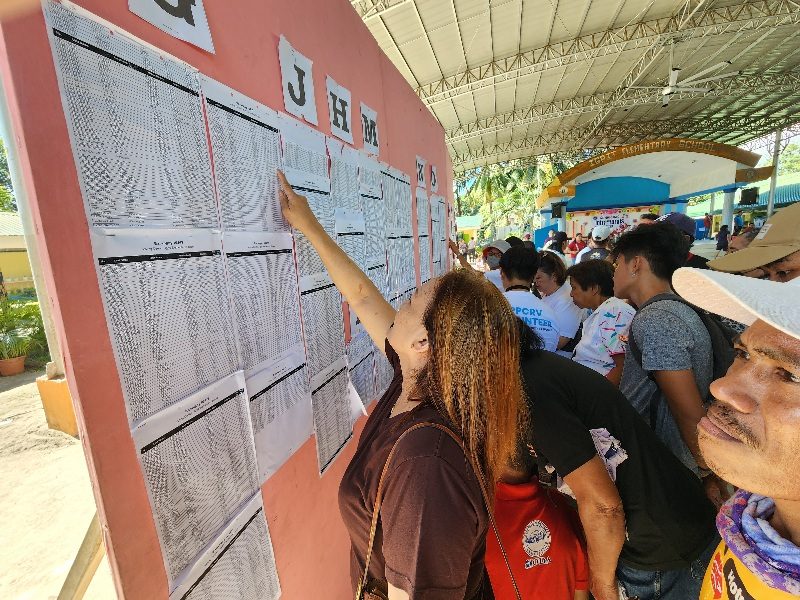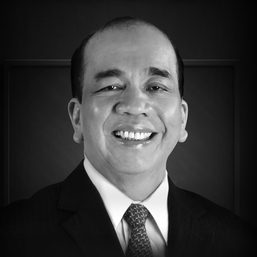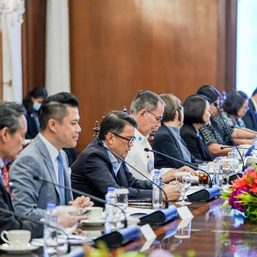SUMMARY
This is AI generated summarization, which may have errors. For context, always refer to the full article.

CAGAYAN DE ORO CITY, Philippines – Several newly elected barangay and Sangguniang Kabataan (SK) officials in Northern Mindanao have joined calls for the extension of their terms of office from three to five years, as outlined in proposals awaiting deliberation in the House of Representatives.
Following several delays, the local elections took place on October 30. However, due to a Supreme Court (SC) ruling against another postponement, the elected officials now serve two-year terms of office instead of the originally intended three years.
On June 27, the SC declared a law, signed by President Ferdinand Marcos Jr., which sought to postpone the December 2022 barangay and youth council elections, unconstitutional. It marked the first rejection of a law signed by Marcos Jr. since he assumed office in June 2022.
The SC ruled that Republic Act 11935, meant to reschedule the elections for budget reallocation toward COVID-19 pandemic recovery, was a serious abuse of discretion.
The barangay and SK elections are set for October 2025, under Republic Act 9164, which synchronized the two grassroots elections.
On Wednesday, November 15, Agusan del Norte 2nd District Representative Dale Corvera filed House Bill 9557, which seeks to extend the terms of office for barangay and SK officials from three to five years. He also proposed allowing officials to seek only one reelection.
“The three-year term of BSK (barangay and SK) officials is very short for the deserving officials,” said Corvera in an explanatory note.
He said his proposal, if approved, will minimize, if not avoid, the almost periodic postponements of the village and youth elections.
Records from the Commission on Elections (Comelec) show that there have been seven barangay and SK election postponements since 2002.
Corvera’s HB 9557 also seeks to reschedule the barangay and SK elections to the first Monday of December 2025 and every five years thereafter, instead of the last Monday of October every three years.
HB 9557 is the second version of a similar proposal filed before the Lower House this year.
Earlier, Cagayan de Oro 2nd District Representative Rufus Rodriguez sought an endorsement from the House Committee on Local Government for his proposal for a five-year term of office for barangay and SK officials, as contained in House Bill No. 7123 which he filed on February 7.
Rodriguez said it would be unfair for village officials elected in October to have a shortened tenure of only two years following the SC ruling that struck down RA 11935.
He said, “They should not suffer for the decision of Congress” to postpone the elections that were supposed to take place in 2022.
Rodriguez’s HB 7123 seeks to amend Section 43 of the Local Government Code, under which barangay and SK officials serve a three-year term of office. Based on his proposal, the three-consecutive term limit is retained.
Roldan Sagosa, a former town councilor in Malitbog, Bukidnon, who won a seat in the San Luis Barangay Council on October 30, said extending the terms of office for barangay and SK to five from three years would mean huge savings for the government.
Instead of holding three elections in nine years, he said, there would only be two elections in 10 years, once the proposed measures become law.
Sagosa said that extending the term of village officials would mean enough time to implement community projects for barangay and SK officials, aside from the day-to-day delivery of basic services.
The first year, he said, is often used for orientation and training, which are necessary for first-timers in barangay governance. He said project planning and proposals are usually done in the second year.
Sagosa pointed out that the project implementation normally takes place in the third year when many of them may be preparing only for reelection, hoping they would be given fresh mandates and complete what they had started.
From his 19-year experience as a town official, Sagosa said it takes time to look for funding for projects and once funds are allocated, the process and procedure of project implementation would again be time-consuming.
Newly-elected village chairman Ronello “Jao” Gumapac of Barangay Baikingon, Cagayan de Oro, said it would be difficult to fulfill campaign promises given the shortened two-year term due to postponements.
But Gumapac expressed reservations about the proposed five-year term and three reelections for barangay chairpersons and other officials. He said it could also mean 15 years in public office for the wrong people.
Kenneth John Sacala, the SK chairperson of Barangay Carmen, Cagayan de Oro, said there are pros and cons to the proposed term extensions of village officials from three to five years.
Sacala was elected on Wednesday, November 15, as president of Cagayan de Oro’s Sangguniang Kabataan Federation (SKF) and would sit as a member of the city council.
He said the village and youth officials must be given enough time to serve, which, he said, has been the primary consideration of the proponents of barangay and SK term extensions.
Sacala said the outgoing SKF president of Cagayan de Oro, Councilor John Michael Seno of Barangay 32, has served the youth sector for five years. This included an additional two years of the usual three-year term due to postponements of the barangay and SK elections.
Barangay Councilor Anthony Abejuela, who had served Cagayan de Oro’s Barangay 1 for 24 years, welcomed the proposed term extension to give them “ample time to really work and see the effects of their efforts.” This, he said, would result in government savings on election expenses. – Rappler.com
Add a comment
How does this make you feel?
![[OPINION] Tough times call for ‘flexible’ governance](https://www.rappler.com/tachyon/2023/11/Tough-times-call-for-flexible-governance.jpg?resize=257%2C257&crop=264px%2C0px%2C720px%2C720px)
![[OPINION] Political terrain in Taguig has shifted](https://www.rappler.com/tachyon/2023/11/binay-cayetano-taguig-november-22-2023.jpg?resize=257%2C257&crop_strategy=attention)






![[OPINION] The First Mode conundrum](https://www.rappler.com/tachyon/2024/03/tl-first-mode-conundrum-03232024.jpg?resize=257%2C257&crop=283px%2C0px%2C720px%2C720px)
There are no comments yet. Add your comment to start the conversation.